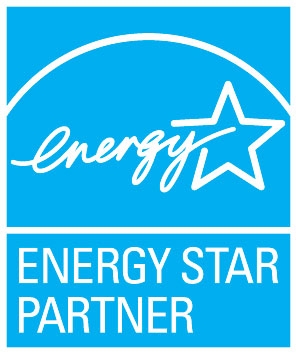 |
 |
 |
Who Are We? -- Geothermal Energy Systems -- Solar Energy Systems -- Energy Audits and Other Services -- Ideas |  |
|
|
New
Home Energy Ratings The Free Energy Company is a certified RESNET home rater and proud partner of ENERGY STAR. We provide home rating (HERS) services to qualify new and existing homes for the ENERGY STAR label. A home energy rating (HERS) involves an analysis of a home’s construction plans and onsite inspections. Based on the home’s plans, our energy consultant will use an energy efficiency software package to perform an analysis of the home’s design. This analysis yields a projected, pre-construction HERS Index. Upon completion of the plan review, the rater will work with the builder to identify the energy efficiency improvements needed to ensure the house will meet ENERGY STAR performance guidelines. The Free Energy Home rater will then conduct onsite inspections, typically including a blower door test (to test the leakiness of the house) and a duct test (to test the leakiness of the ducts). The results of these tests, along with inputs derived from the plan review, are used to generate the HERS Index score for the home and ultimately result in an Energy Star rating for the home. A HER’s rating (Home Energy Rating) may also be used to qualify for an Energy Efficient Mortgage which will give you more buying power and potentially better mortgage terms. Click on the following link to take you to our partners at Energy Star to learn more about the HERS process and testing: Energy Stars Home Energy Ratings.Energy Star labeled homes offer more home, for less money, than standard homes. These homes use reliable and established technologies and building practices to operate 30% more efficiently than homes built simply to local building code. The Energy Star label offers added confidence for new home buyers because they know that the home meets rigorous efficiency guidelines set by the EPA. |
||||||||||||||||||||||||||
|
Who can benefit most from receiving HERS rating?
$$ Energy efficient choices can save families up to 30% on their energy bills, and will show similar reductions on yearly greenhouse gas emissions - all without sacrificing features, style, or comfort. $$ This HERS rating is a good service for businesses, consumers, and the environment. Learn more about ENERGY STAR qualified new homes at http://www.energystar.gov.The HERS Index The HERS Index is a scoring system established by the Residential Energy Services Network (RESNET) in which a home built to the specifications of the HERS Reference Home (based on the 2006 International Energy Conservation Code) scores a HERS Index of 100, while a net zero energy home scores a HERS Index of 0. The lower a home’s HERS Index, the more energy efficient it is in comparison to the HERS Reference Home.Each 1-point decrease in the HERS Index corresponds to a 1% reduction in energy consumption compared to the HERS Reference Home. Thus a home with a HERS Index of 85 is 15% more energy efficient than the HERS Reference Home and a home with a HERS Index of 80 is 20% more energy efficient. Comparing the New HERS Index with the Old HERS Score For homes rated before July 1, 2006, the rating score is known as a "HERS Score." The HERS Score is a system in which a home built to the specifications of the HERS Reference Home (based on the 1993 Model Energy Code) has a HERS Score of 80. Unlike the HERS Index, each 1-point increase in a HERS Score is equivalent to a 5% increase in energy efficiency. Please see the table below for a comparison of the HERS Score and the HERS Index. |
|||||||||||||||||||||||||||
|
|||||||||||||||||||||||||||
| 605 N. High Street, Independence, MO, 64050 | Contact Us! | (816) 461-8989 |
